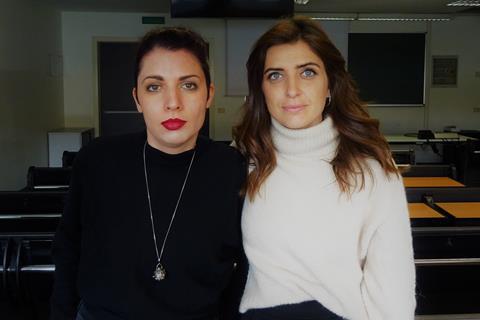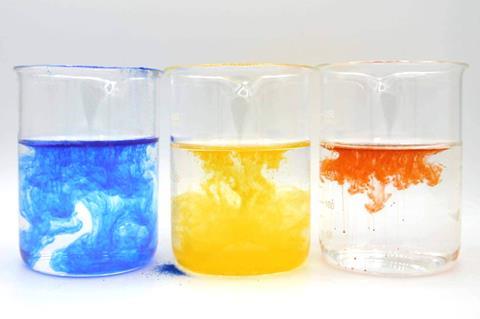Italian start-up Sphera Encapsulation can protect lipophilic food ingredients in aqueous environments
Encapsulation is a popular strategy in numerous industries that use sensitive active ingredients or want control over how and when they are released. Long known and used in the pharmaceutical and cosmetics sectors, encapsulation can protect active ingredients from moisture and heat, prevent ingredient interaction or enhance the bioavailability of nutrients.

More recently, the food industry has harnessed the process for masking odours and tastes of colourants, preservatives, leavening agents and other unappetising ingredients in food and drink.
Micro- and nano-encapsulated oils are particularly valuable as an alternative to directly incorporating sensitive oils and fats into manufactured food products. ‘If you want to provide an Omega 3 supplement for example, that’s quite tricky because it’s very prone to oxidation,’ says Martina Vakarelova, co-founder and co-chief executive of Italian start-up Sphera Encapsulation. ‘We’re very proud that one of our technologies can overcome this challenge.’
SpherAQ turns lipophilic substances into encapsulated powders that are easily suspended in water, making them functionally soluble, tasteless and odourless. The encapsulates are easy to incorporate into foodstuffs or drinks, or to sell directly as a flavourless supplement. Encapsulation also protects the molecules from the harsh conditions of the digestive tract, from the action of metabolic enzymes, and from the effects of temperature and oxidation.
Vakarelova became interested in encapsulation during her PhD in biotechnology at the University of Verona in Italy. ‘The laboratory was just beginning to work on encapsulation so I was involved from the very start and learned a lot,’ she recalls. During her PhD, Vakarelova took an opportunity to work with Denis Poncelet at the Nantes-Atlantic National College of Veterinary Medicine, Food Science and Engineering in France. Poncelet, who co-founded French microencapsulation company Capsulae (now part of Innov’ia), was ‘a great inspiration’, she recalls.

‘When I returned to Italy with my colleague, who did her PhD in the same group, we wanted to experiment,’ she says. Funding for start-ups is rare in Italy, so Vakarelova and Francesca Zanoni entered competitions to raise money for their project. ‘When we started winning these competitions, things became quite serious.’ They founded Sphera in December 2016 and have since grown the company to a team of 15, with five working full-time from their laboratory in Verona, Italy.
So far, Vakarelova and Zanoni have built the company without outside investment, through sales revenue and income from competitions – including the RSC’s Emerging Technologies competition, which they won in 2021. They targeted the food industry first, which Vakarelova says gave them a solid entry point. ‘We also come from a food laboratory,’ she adds, ‘so we decided to use our knowledge in food ingredients.’ Vakarelova graduated from the University of Food Technologies in Plovdiv, Bulgaria, where she specialised in industrial engineering.
Now the start-up is casting its net wider than food and drink, including drugs, cosmetics ingredients, and active substances in fertilisers and pesticides. This versatility is possible because Sphera keeps a range of encapsulation technologies at its disposal. Other than SpherAQ, the team uses, among others, spray drying techniques, where the molecule is atomised in a hot gas stream to instantly obtain a powder; fluid bed technology, which involves atomising a liquid coating formulation onto a bed of fluidised solid particles; ionic gelation, which involves the production of spherical hydrogels; coacervation, which uses liquid-liquid phase separation to form drops containing oil; and nanoencapsulation.
When we started winning these competitions, things became quite serious
The team’s philosophy is to study a molecule and find the technology that’s best fitted for encapsulating it. Every molecule has its match, Vakarelova says. ‘The structures of the molecules are so diverse, and the properties can be so vast, we would like to use all of that in order to achieve an extraordinary final product,’ she says. ‘We try to get the best of each technology and try to apply it to the specific ingredient in order to achieve something spectacular and something that the product would never be able to do otherwise.’
The team plans to use SpherAQ powders to make colourants, she hints. The idea came after Sphera developed a tasteless and odourless turmeric-based powder for Lubrizol, which turned water yellow. ‘So why not use it to make lemonade, for example,’ she says. ‘That way it is not only a strong antioxidant but also the colourant. We’re trying to give the molecule more than one opportunity.’
Vakarelova hopes Sphera will carve out a role as a research centre. ‘We want to become the reference point of encapsulation,’ she says. ‘We want to continue with our research, but we also would like to start our own portfolio of molecules to be directly offered to the market.’
Sphera Encapsulation
Date of founding: 2016
Location: Verona, Italy
Number of employees: Five full-time
Origin: Independent start-up
Total investment to date: none












No comments yet